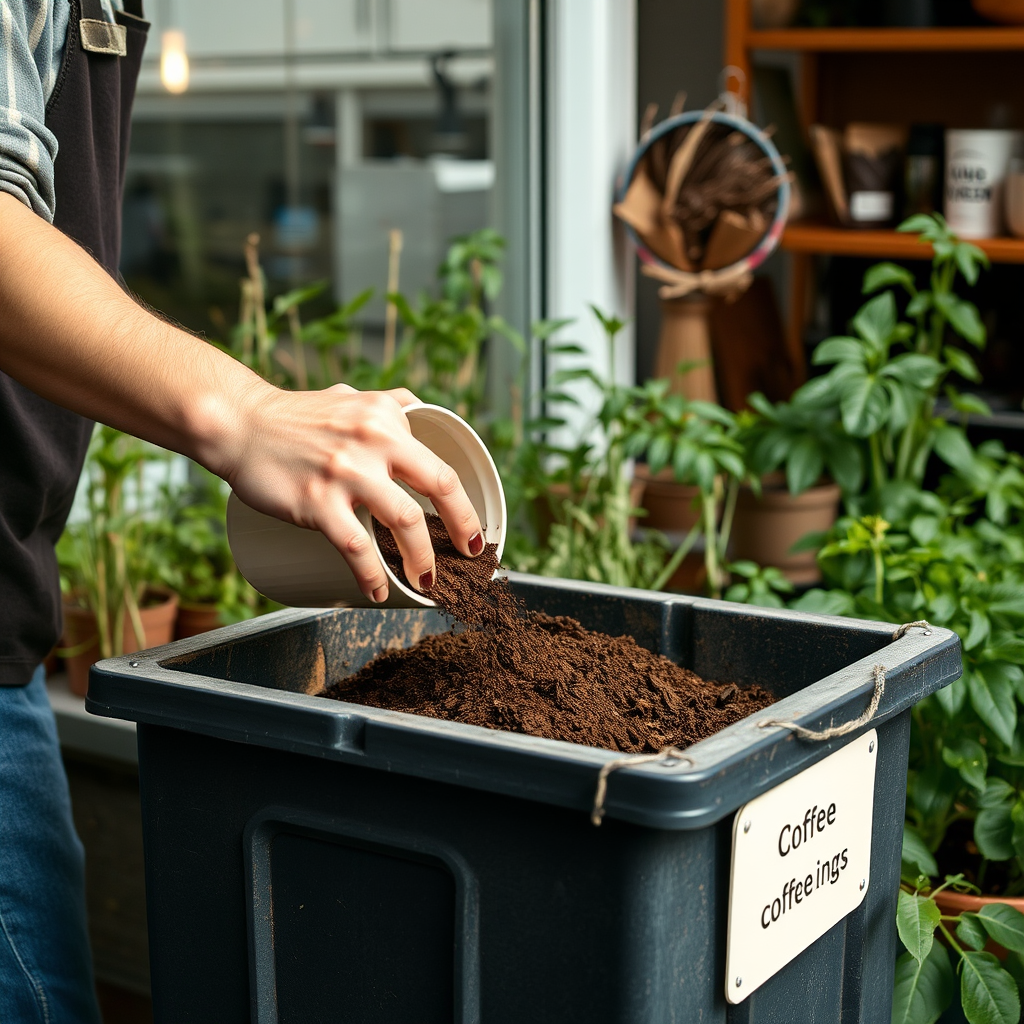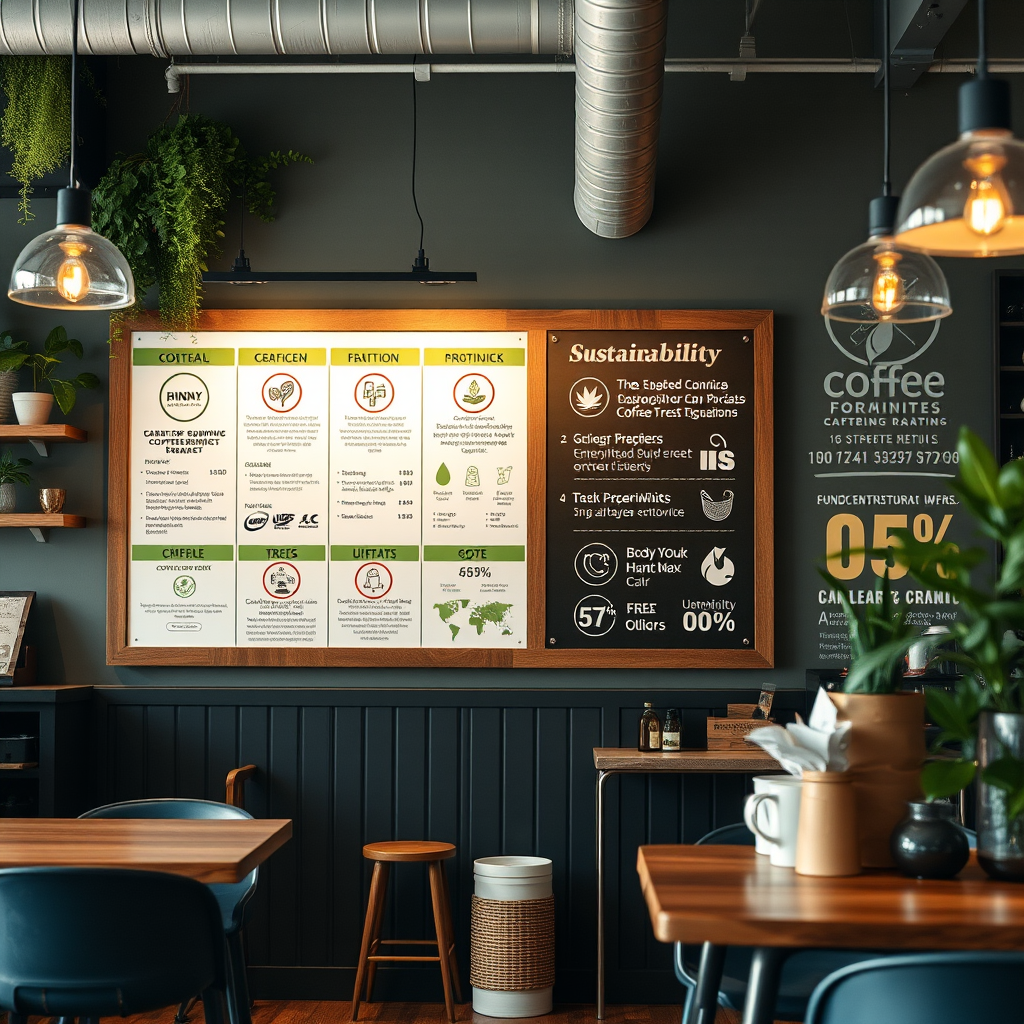In today's environmentally conscious world, small cafes have a unique opportunity to lead by example in sustainable practices. While large coffee chains often dominate headlines, independent coffee shops can make meaningful environmental impacts through thoughtful, practical changes that resonate with their communities.
Sourcing Ethically Grown Coffee Beans
The foundation of any sustainable coffee practice begins with bean sourcing. Small cafes can partner directly with coffee farmers or work with certified fair-trade suppliers to ensure their beans are grown using environmentally responsible methods. Look for certifications like Rainforest Alliance, Fair Trade, or Organic, which guarantee that farmers follow sustainable agricultural practices.
Key Sourcing Considerations:
- Direct trade relationships with coffee farmers
- Seasonal and regional bean rotation
- Supporting women-owned coffee cooperatives
- Choosing shade-grown coffee varieties


Reducing Waste and Energy Consumption
Small cafes can significantly reduce their environmental footprint through strategic waste reduction and energy-efficient practices. Start by conducting a waste audit to identify the biggest sources of waste in your operation, then implement targeted solutions.
Energy Efficiency Measures
Investing in energy-efficient equipment pays dividends both environmentally and financially. Modern espresso machines with programmable settings can reduce energy consumption by up to 30%. LED lighting, smart thermostats, and Energy Star-certified refrigeration units further minimize your cafe's energy footprint.
LED Lighting
Reduce energy use by 75%
Smart Machines
Programmable energy settings
Smart Thermostats
Optimize heating and cooling
Waste Reduction Strategies
Coffee grounds represent one of the largest waste streams in any cafe, but they're also one of the most valuable for repurposing. Used coffee grounds make excellent compost material and can be offered to customers for their gardens. Additionally, implementing a comprehensive recycling program and partnering with local organizations can divert significant waste from landfills.

Sustainable Packaging Solutions
The shift away from single-use plastics presents both challenges and opportunities for small cafes. Sustainable packaging options have evolved significantly, offering practical alternatives that align with environmental values without compromising functionality.
Eco-Friendly Packaging Options
Compostable Materials
- PLA-lined paper cups
- Bagasse food containers
- Wooden stirrers and utensils
- Plant-based plastic alternatives
Reusable Options
- Branded reusable cups
- Customer cup discount programs
- Glass jar return systems
- Ceramic for dine-in service
Implementing a customer incentive program for bringing reusable cups can significantly reduce packaging waste while building customer loyalty. Consider offering a discount or loyalty points for customers who bring their own cups, and prominently display the environmental impact of this choice.
Communicating Your Green Initiatives
Transparency and authentic communication about your sustainability efforts help build trust with environmentally conscious customers. However, it's crucial to avoid greenwashing by ensuring your messaging accurately reflects your actual practices and ongoing commitments.
Effective Communication Strategies:
- Share specific metrics and achievements
- Tell the stories behind your sourcing partnerships
- Create educational content about coffee sustainability
- Engage customers in your sustainability journey
- Display certifications and partnerships prominently

Building Community Partnerships
Small cafes can amplify their environmental impact by partnering with local organizations, schools, and community groups. These partnerships create opportunities for education, waste reduction, and community engagement while strengthening your cafe's role as a local sustainability leader.
Consider hosting sustainability workshops, partnering with local urban farms for composting programs, or collaborating with environmental groups for community clean-up events. These initiatives not only benefit the environment but also create meaningful connections with your customer base.
Key Takeaway
Sustainable coffee practices aren't just about environmental responsibility—they're about building a business that resonates with conscious consumers, reduces operational costs, and contributes positively to your community. Start with small, manageable changes and gradually expand your sustainability initiatives as they become integrated into your daily operations.
About syndicainr: Your trusted source for cafe industry insights, sustainable practices, and business strategies that help independent coffee shops thrive in today's competitive market.
